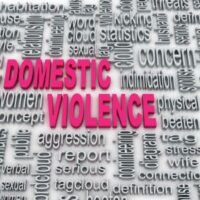Facts to Know Before Filing a Restraining Order in Florida

Domestic violence remains a top concern in the US, but you might not realize the prevalence of violent acts by members of the family or household. According to the National Coalition Against Domestic Violence (NCADV), around 10 million people suffer physical violence from an intimate partner every year, at a rate of nearly 20 per minute. Annually, 1 in 15 children are exposed to domestic violence, most of whom are eyewitnesses or victims themselves. While there are criminal laws about violent crime, Florida also has a process through which a victim can obtain a domestic violence injunction to protect against further harm.
Florida’s statute on restraining orders is a powerful remedy for ensuring safety for you and your family. However, the legal process can be complicated because you must balance your interests at the same time as the rights of an abuser. A Dade City domestic violence injunctions lawyer will assist with all essential tasks, but there are some facts you should know before getting started on the process.
Petitions are sworn under oath. You ask the court to issue an injunction by filing a petition, in which you describe incidents of domestic violence, fear of future threats by the abuser, and other facts. The documents are sworn under oath, so they are the equivalent of testimony in court. Making false or misleading statements could cause the injunction not to be granted. Furthermore, if it is related to an upcoming child custody matter, providing false testimony in a legal proceeding can be a factor that the Court relies in creating a parenting plan.
Your hearing is an emergency proceeding. There is a sense of urgency in getting a restraining order since your safety is at risk, so the court will act on your petition on an emergency basis. This means the abuser will not be provided with notice and will not be present. The term for such a hearing is ex parte because one party does not get their day in court.
You can request provisions in the injunction. There are many different areas where you want to restrict the actions of an abuser to protect your own safety. It is common to include terms for no-contact and stay away from home and work, but you may also want to request:
- Removal of the abuser from a home that you share;
- A suspension of child custody and parenting time;
- Child and spousal support; and,
- Restrictions on firearms owned by the abuser.
There will be a follow-up hearing. The respondent to your petition may not have had their day in court for the ex parte hearing, but he or she will get the opportunity. Within 15 days after issuing an emergency domestic violence injunction, the court must set another hearing to give the abuser a chance to defend the allegations. The judge will determine whether to extend the restraining order, change its terms, or terminate it.
A Florida Domestic Violence Attorney Can Provide Additional Details
Our team at The Law Office of Laurie R. Chane is experienced with restraining orders, so we will fight to protect your safety. To learn how we can help with the process, please call 352-567-0055 or visit our website to schedule a consultation at our location in Dade City.
Source:
ncadv.org/STATISTICS
